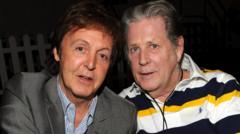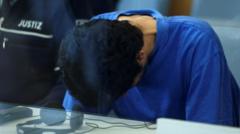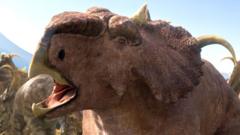In a ceremonial send-off on Saturday, Pope Francis will be laid to rest, celebrating the life of a leader who broke from tradition to connect with the world's marginalized.
**Pope Francis' Funeral: World Leaders Unite to Honor a Legacy of Humility and Compassion**

**Pope Francis' Funeral: World Leaders Unite to Honor a Legacy of Humility and Compassion**
As Pope Francis prepares for his funeral, global leaders are set to gather to pay tribute to a pontiff who emphasized humility, compassion, and social justice throughout his papacy.
---
In Vatican City, preparations are underway for the funeral of Pope Francis, who passed away on Easter Monday at the age of 88. His funeral will start on Saturday and include a simpler set of rituals that align with the humble approach Francis adopted throughout his papacy. The ceremony will be led by Cardinal Giovanni Battista Re, the dean of the College of Cardinals.
On Tuesday, Francis' body lay in repose in his residence, and images released by the Vatican displayed him dressed in red and white vestments, rosary in hand, in an open coffin. A procession will move his coffin to St. Peter's Basilica, where it will lie in state for three days, allowing the public to pay their respects.
Global memorial services were held in honor of the late pontiff, including at St. Mary’s Cathedral in Sydney and Manila Cathedral in the Philippines. National flags across various countries were lowered to half-staff, mourning together for the pope revered for advocating for migrants, the poor, and global peace.
Leaders from around the world will attend the funeral, including President Donald Trump and Ukraine's President Volodymyr Zelensky. Their presence highlights the contrast between Francis’ call for compassion and the sometimes-divisive politics of the leaders in attendance.
As preparations continue in a more subdued Vatican—where the operations are handed over to Cardinal Re—cardinals are convening for meetings to deliberate on the church’s future and the selection of a new pope. The process of selecting Francis' successor, known as a conclave, is expected to begin after a week, reflecting the gravity of the moment in church history.
Francis’ health had deteriorated in recent months, ultimately succumbing to a cerebral stroke that led to his death. In his will, he requested to be laid to rest at the Papal Basilica of St. Mary Major in a simple, undecorated tomb, emphasizing the humility that defined his ministry.
The legacy of Pope Francis is multifaceted; he canonized more saints than any pope before him, offered a new approach to sainthood, and tackled pressing issues such as climate change and social injustice. Admirers remembered him not only for his religious leadership but also his outreach to marginalized communities.
As the world mourns the passing of this transformative leader, discussions will surely emerge regarding his successor, with aspirations for a continued message of hope and compassion taking center stage in the election process.
In Vatican City, preparations are underway for the funeral of Pope Francis, who passed away on Easter Monday at the age of 88. His funeral will start on Saturday and include a simpler set of rituals that align with the humble approach Francis adopted throughout his papacy. The ceremony will be led by Cardinal Giovanni Battista Re, the dean of the College of Cardinals.
On Tuesday, Francis' body lay in repose in his residence, and images released by the Vatican displayed him dressed in red and white vestments, rosary in hand, in an open coffin. A procession will move his coffin to St. Peter's Basilica, where it will lie in state for three days, allowing the public to pay their respects.
Global memorial services were held in honor of the late pontiff, including at St. Mary’s Cathedral in Sydney and Manila Cathedral in the Philippines. National flags across various countries were lowered to half-staff, mourning together for the pope revered for advocating for migrants, the poor, and global peace.
Leaders from around the world will attend the funeral, including President Donald Trump and Ukraine's President Volodymyr Zelensky. Their presence highlights the contrast between Francis’ call for compassion and the sometimes-divisive politics of the leaders in attendance.
As preparations continue in a more subdued Vatican—where the operations are handed over to Cardinal Re—cardinals are convening for meetings to deliberate on the church’s future and the selection of a new pope. The process of selecting Francis' successor, known as a conclave, is expected to begin after a week, reflecting the gravity of the moment in church history.
Francis’ health had deteriorated in recent months, ultimately succumbing to a cerebral stroke that led to his death. In his will, he requested to be laid to rest at the Papal Basilica of St. Mary Major in a simple, undecorated tomb, emphasizing the humility that defined his ministry.
The legacy of Pope Francis is multifaceted; he canonized more saints than any pope before him, offered a new approach to sainthood, and tackled pressing issues such as climate change and social injustice. Admirers remembered him not only for his religious leadership but also his outreach to marginalized communities.
As the world mourns the passing of this transformative leader, discussions will surely emerge regarding his successor, with aspirations for a continued message of hope and compassion taking center stage in the election process.























